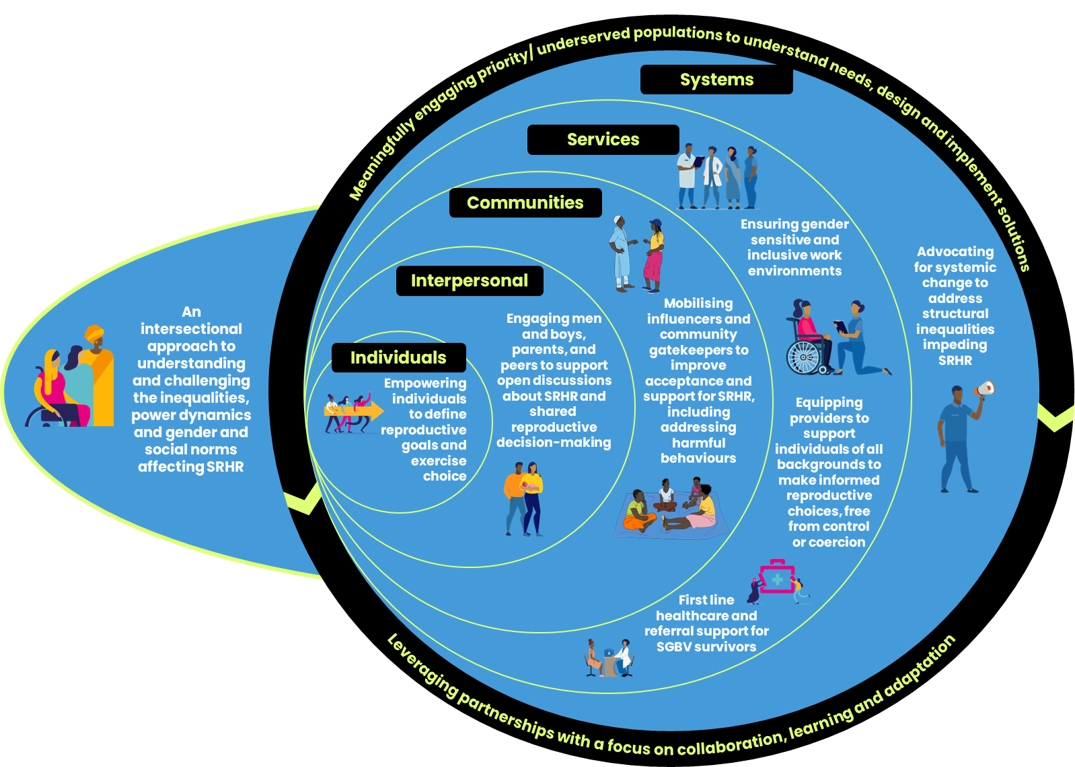Social Norms at MSI
This section provides an overview of our approach to social norms at MSI, where social norms feature in our gender equality and social inclusion (GESI) programming, how they underpin our approach to sustainable demand for public sector strengthening and their role in behaviour change.
It should be particularly useful for those of you who need to talk about our work externally!
How we approach Social Norms SBCC
- We work with communities, for communities, and this is deeply embedded in our ways of working
- We use data to inform decision-making and tracking impact
- We leverage, shift, and counter social norms as relevant
- We engage not just our primary target audience, but their influencers too
- We are led by our country programmes to ensure we leverage existing opportunities in the communities to further MSI’s mission
Our theoretical frameworks
Understanding and programming to influence the social norms affecting SRHR is critical to MSI’s approach to addressing gender equality and social inclusion (GESI). MSI aspires to be GESI transformative in our programming, meaning where possible we try and address the root causes of the inequalities affecting who has power and privilege in the contexts where we work. Our GESI programming seeks to strengthen the agency of vulnerable and marginalised communities, including women and girls, and ensure they have the voice, choice, and power to exercise their rights to sexual and reproductive health. We cannot do this without addressing the social norms affecting reproductive choice and empowerment, this is reflected in our MSI GESI programming framework.
For more on GESI programming at MSI see here (internal link).

The potential to deliver long term change in the expansion of reproductive choice and empowerment means that addressing gender and social norms is a key component of our approach to sustainable demand in public sector health systems strengthening. Alongside working with in partnership with governments and a range of community engagement approaches, gender and social norms are an essential feature of the way we hope to build a long-term enabling environment. See here (internal link) for more on sustainable demand.
Finally, at MSI we look at communications through the lens of behaviours. This is why we developed our MSI behaviour change framework. A quick refresher below, full guidance is saved here (internal link). This framework helps remind us that different norms, exert different influences, depending on where an individual is on the behaviour change pathway.
